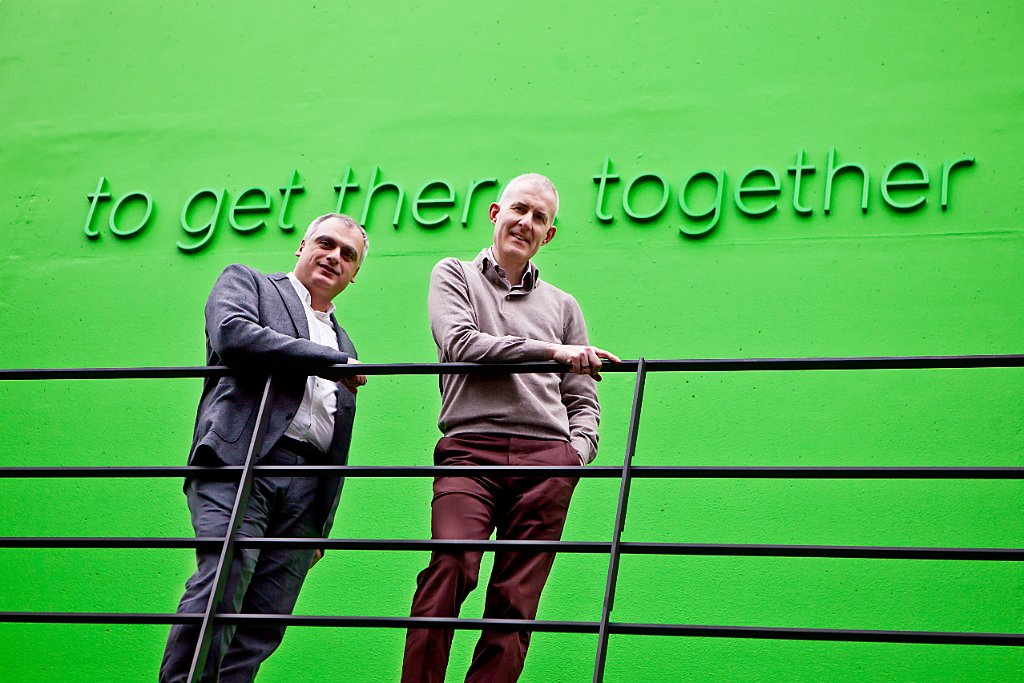
How would you describe the IoT in a nutshell?
In today's world, many people spend their days sitting at a computer. They are all connected, and together they form an important network. Full-scale integration of the IoT into this network adds a new dimension, that of "things", giving us a platform where people and things collaborate to help each another.
How is the IoT set to influence sustainability in business?
Once everything is connected to everything else, much more data is available. This newly mined data actually constitutes the core of all business applications. Using this richer information, businesses can develop new products. It also means there is more available data on which to base your marketing, processing efficiency can be sped up, and so on. The great thing about this is that most companies already have this powerful data in their hands – the information just has to be captured and rendered transparent.
Are there also applications that will have an impact on our everyday lives?
The quality of our general standard of living will improve. The IoT will have an impact on many aspects of our lives. For example, the number of collisions will decline sharply, as intelligent cars will be able to detect one another and intervene as required. Smart algorithms will be able to predict many scenarios: your smartphone, for example, will know that you are ill before you even know it yourself. This will enable us to contain epidemics and viruses at an early stage. By connecting IoT to nanotechnology, medication will also be transformed. If a patient swallows a small transmitter, we will be able to track all manner of data directly from inside their body.
What are the biggest challenges in terms of implementation?
As is true for any major game changer, it takes a while before the necessary knowledge becomes generally widespread. At the outset, the experts – people who work with the IoT day in, day out – are the ones who have the knowledge, and this knowledge is essential to ensure compliance. Gaining insight into all possible options is also a prerequisite. There are technological challenges as well. The Internet of Things consists of different layers: each layer needs to be installed separately, so that everything can then be integrated. Sensors need to be installed and linked to each other, a platform needs to be set up to collect the data, etc. There are also various ethical issues that – depending on their outcome – can affect the implementation.
Does everything have to be connected or are there some things that should be deliberately left unconnected?
First and foremost, we need to reassess the role of computers in society. An important thing to consider is regulation, which should become stricter over time. One key amendment to the law relates to informed consent, which means that when collecting data, every individual has to give their express consent. This enables people to maintain control over their own data. How this should be done, and what other regulations need to be created is the question to which only policymakers can provide an answer. Although everything can be linked, it is a personal judgment whether you gain an equal amount of added value from all the connections. People will also need to take energy into account: will there be enough energy available to keep all devices constantly connected to one another? Another factor to consider is how much energy can actually be consumed and, on that basis, whether devices should be active at all times or only part of the time.
Is the increased focus on cybersecurity influencing the development and implementation of the IoT?
In 2016, researchers managed to hack implementable devices such as a pacemaker. Hackers being able to influence a person's heartbeat is a risk that has to be avoided at all times. Life-threatening situations of this kind need to be analyzed in advance, so that measures can be taken to totally prevent them. Devices are becoming increasingly smart thanks to the application of artificial intelligence, alongside connectivity. The greatest risk here would be for connected devices to start making decisions that have negative consequences independently of human beings.
One possible answer to this security issue is a combination of a number of different new technologies. Inserting an additional blockchain layer provides much more built-in security overall.
Will the IoT prove to be a job creator or a job killer?
Any technological "revolution" causes upheaval in the job market. It will result in trade-offs. Above all, the content of people's jobs will change. New ideas will enable people to grow their businesses, which will create jobs. In the field of data management, companies will be looking for people who understand data and are able to interpret it. This will become a specialist area. Some jobs that we see today will of course disappear – pure reporting activities will be automated in future. On the other hand, more people will be needed to maintain the devices and the network.
Want to read more? http://www.realdolmen.com/en/strategic-ict/ict-hypes/internet-of-things-iot
